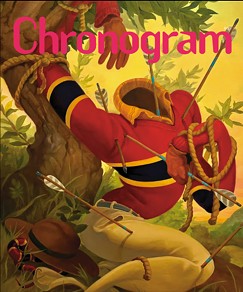Two acres may not sound like a lot of land. But that’s a little bigger than the lawn that came with the Ellenville cottage purchased by the cofounders of Flowering Sun Ecology Center in late 2016, which they immediately began transforming into growing space. In 2019 came the tree nursery and the first mushrooms. Now, in their fifth year of farm production, they’re selling gourmet mushrooms to markets and restaurants throughout the Tri-State area—and were the recent recipients of a $65,000 FuzeHub grant that will allow them to transform the fresh fungi into shelf-stable value-added products that will bring the benefits of mushrooms to a much wider market.
“We’re really interested in leveraging ultrasonic extraction, because it’s very efficient and can increase the bioavailability of certain compounds,” says Sam Newman-Plotnick, product development coordinator at Flowering Sun. “We're developing functional beverages in ready-to-drink and powder formats, therapeutic tinctures, honeys, and cosmetics. The raw mushrooms are just the starting point—through proper processing, we can access compounds and create products impossible to achieve with fresh mushrooms alone.”
The transformation of grassland into arable land meant a lot of backbreaking rock picking, soil amendment, and strategy. First came tilling the acidic soil with a walk-behind tractor, laying out a system of raised beds, and adding in lots of compost and wood chips, plus agricultural lime biochar and rock dust. “That first year, we only used about half of the available land,” says Newman-Plotnick. “Looking back, we might have chosen to tarp the full area using silage tarps, allowing it to rest for a year. That method solarizes the soil, breaking down grasses and seed banks and leaving behind a more uniform, workable surface. Since we were eager to get planting, we skipped that step in favor of immediate cultivation.”
Fruit trees and hedgerows between the rows of veggies help to build the soil, attract pollinators and prevent erosion. Toward the back of the microfarm, a perennial food forest nurtures pawpaws, honey locusts, nitrogen-fixing trees, persimmons, apricots, apples, pears, currants, gooseberries, honeyberries, and raspberries. The team amended their own farming experience, gained in diverse settings from Maine and Vermont to Central and South America, wisdom from Cornell Cooperative Extension, fellow farmers, and, significantly, indigenous elders.
“What we now call ‘permaculture’ was simply their way of life: living in reciprocity with nature, enhancing soils and food systems, improving wildlife habitat, and using resources without depleting them,” says Newman-Plotnick about the Haudenosaunee, the group of Indigenous peoples native to this land. “Their tools were biodegradable, their materials nontoxic, and their mindset profoundly different from the extractive one that dominates today. To learn from that legacy, we listen to the descendants of those nations. Elders still teach, and we have been fortunate to sit with several and ‘stand under’ their vast body of knowledge—wisdom once dismissed as primitive but now recognized as the sophisticated ecological science of an advanced civilization.”
On Flowering Sun’s website, you can purchase several gourmet mushroom varieties, join a mushroom CSA, or book a growing consultation to enhance your own love affair with fungi. “We need reliable income to support our families, maintain the farm, and keep our vision growing. Because our cultivated area is only about an acre, we looked for an enterprise that could generate significant revenue on a small footprint, “ says Newman-Plotnick. “Mushrooms emerged as the answer. From the farm’s earliest days, one member envisioned a robust fungi operation; another brought deep experience in foraging and cultivation. As we began growing mushrooms, the enterprise blossomed—financially and ecologically.”
Part of that blossoming is a cooperative approach to ownership (there are eight coop partners) that mirrors the interdependence of permaculture in the social and financial spheres, and Plotnick-Newman says it’s very much key to Flowering Sun’s sustainable success. “Running a business cooperatively means that everyone involved feels a sense of investment—not just financially, but emotionally and practically,” he says. “It’s not a clock-in, clock-out situation. People care about the farm’s success because they directly benefit from it, whether through income, food, infrastructure, shared tools and equipment, or access to the events and education the business supports.” Studies indicate that cooperative models have a 90 percent better chance of survival at the five-year mark.
With grant funds in hand, the team is poised to build out their vertically integrated production model in ways they believe will benefit folks far and wide and bring fresh authenticity to the current fungi frenzy. “The mushroom market is outpacing the supporting science, creating an opportunity for rigorous product development, “ says Newman-Plotnick. “We've seen too much hype in this space—we want products that actually work, backed by real data rather than marketing claims. We're positioning for nationwide distribution, educating consumers about what's possible when mushrooms are properly processed, dehydrated, and extracted.”
Meanwhile, they’re hiring staff for new farmers’ market opportunities and open to collaborations, partnerships, fresh ideas and—of course—new customers who want to bring fabulous fungi to their own culinary adventures. “We invite people interested in any of what we do here to reach out,” says Newman-Plotnick. “We’re gradually adding more workshops and events, but just give us a call if you want some mushrooms or want to know more about what we’re up to.”
























